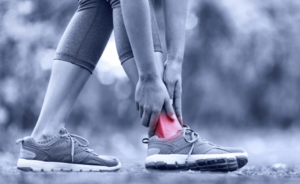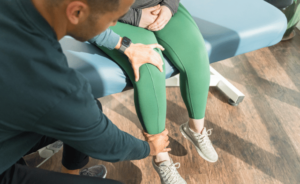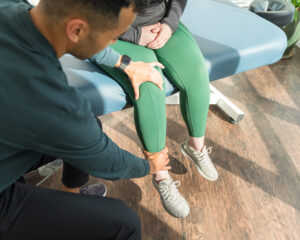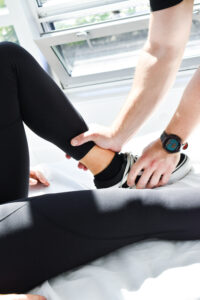Understanding Concussions
Concussions are a form of traumatic brain injury (TBI) caused by a blow or jolt to the head or body that causes the brain to move rapidly within the skull. This sudden movement can lead to chemical changes in the brain and sometimes damage brain cells. Concussions are particularly common in contact sports like hockey and rugby, but they can also occur from any sports-related injury that involves your head, like skiing or soccer.
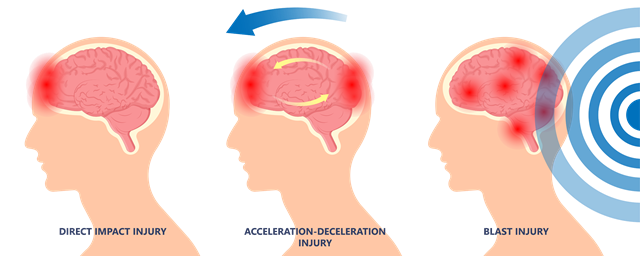
When an athlete experiences a concussion, the impact causes the brain to shift and twist, stretching and damaging brain cells and creating a cascade of metabolic dysfunction. This disruption affects how the brain processes information, leading to symptoms such as headaches, confusion, dizziness, nausea, and even loss of consciousness. The severity of a concussion can vary, but even mild concussions require proper management to prevent long-term consequences.
The Role of Physiotherapy
At Vancouver Physiotherapy Hub, our physiotherapists are renowned for their expertise and commitment to patient care. In British Columbia, physiotherapists must be registered with the College of Physical Therapists of British Columbia (CPTBC), ensuring they meet rigorous standards of practice. Additionally, continuing education and specialized courses set our physiotherapists up to provide you with the best care when it comes to concussion management and prevention.
Our team is adept at addressing sports-related concussions, employing evidence-based techniques to aid recovery and prevent future injuries. By focusing on individualized treatment plans, we help athletes regain their strength, coordination, and confidence.
How Can You Try Preventing Concussions?
Preventing concussions in sports requires a multifaceted approach. While no one approach will ensure complete coverage, combining strategies will lower your overall risk of concussions and concussion-related symptoms.
Below are 5 of the best ways to prevent concussions in sports:
#1 – Wear the right equipment (and wear it well!)
This goes without saying, but when equipment is required, there is usually a justifiable reason for this. Ensure you are wearing protective gear, like helmets, padding, and mouthguards, as these help protect your body and absorb and disperse shock. In addition, ensure that your equipment is well-fitted. Protective gear that is too tight or too loose can give a false sense of security, and provide you with little benefit.
#2 – Focus on core & neck stability.
Focusing on strengthening your neck muscles can help reduce the whiplash effect during impacts, minimizing the brain’s movement within the skull. In addition, a strong core improves overall balance and stability, which can help athletes better withstand and respond to collisions.
#3 – Get educated!
A huge component of concussion prevention is education. Educating yourself, your fellow athletes, coaches, and parents about proper techniques, such as safe tackling or checking in hockey, can reduce the likelihood of concussions. Additionally, learning about the signs and symptoms of concussions ensures prompt recognition and treatment, resulting in a more positive outcome for the person affected.
#4 – Advocate for safety
Advocacy for strict enforcement of rules against dangerous plays, such as illegal checks in hockey or headshots in soccer, helps protect athletes. If you have the capacity, get involved in advocacy! Helping support the safe implementation and adherence to rule changes designed to enhance safety, such as limiting contact practices, can prevent concussions.#5 – Know where your head is at
Conducting baseline cognitive tests allows for better assessment and management of concussions if they occur during the season. Comparing post-injury results to baseline data helps in determining the extent of the injury and recovery progress.
A Physiotherapy Appointment at Vancouver Physiotherapy Hub
At Vancouver Physiotherapy Hub, our approach to managing concussions is thorough and patient-centered.
Step 1: The Assessment
When you come in for a physiotherapy appointment, the process begins with a comprehensive assessment. Our physiotherapists conduct a detailed evaluation to understand the extent of your injury. This includes taking a thorough history and performing cognitive, physical, and neurological assessments to gain a full picture of your condition.
Step 2: Treatment
Once the initial evaluation is complete, we move on to the treatment phase. Depending on the severity of your concussion, immediate care might involve a period of rest and symptom management. This can include various pain relief techniques and continuous monitoring of your progress.
As your symptoms begin to improve, we introduce more specific therapies such as vestibular therapy, balance training, and targeted exercises designed to restore strength and coordination. These therapies are crucial for addressing common post-concussion issues such as dizziness and balance problems.
Step 3: Customized Treatment Plan
The next step involves creating a customized treatment plan. Each patient receives a personalized plan that outlines the steps needed for recovery. This plan includes specific goals, timelines, and exercises tailored to your individual needs. Our physiotherapists monitor your progress regularly to ensure that the treatment plan is effective. Adjustments are made as necessary to keep your recovery on track.
Step 4: Home Care
Home care is an essential component of the recovery process. Patients are provided with exercises to perform at home, which support their recovery and help prevent further injuries. These exercises focus on improving balance, coordination, and strength. Additionally, we offer guidance on modifying daily activities to avoid aggravating the injury while promoting healing. This holistic approach ensures that you receive continuous care and support even outside of the clinic, helping you achieve a full and timely recovery.
FAQs
What should I not do after a concussion?
After a concussion, it’s crucial to avoid activities that could result in another head injury. This includes contact sports and any activity that requires intense physical exertion. Rest is essential to allow the brain to heal.
Can physiotherapy help with a concussion?
Yes, physiotherapy can play a significant role in concussion management. Our physiotherapists at Vancouver Physiotherapy Hub use targeted therapies to address symptoms such as dizziness, balance issues, and neck pain, promoting a faster and more complete recovery.
How can I speed up the healing of a mild concussion?
Healing from a mild concussion involves a combination of rest, gradual return to activities, and specific exercises recommended by your physiotherapist. Avoiding screens, staying hydrated, and following a healthy diet also support recovery.
Additionally, educating yourself on the signs and symptoms of concussions will help you identify when one is happening quickly. The quicker you can identify a concussion, the more prompt you can receive treatment, which helps mitigate the overall effects of concussion.
Do you offer direct billing?
Yes, Vancouver Physiotherapy Hub offers direct billing to most major insurance providers, making it easier for our patients to access the care they need without the hassle of upfront payments.
Conclusion
In conclusion, preventing concussions in sports requires a proactive and informed approach. At Vancouver Physiotherapy Hub, we are dedicated to helping athletes stay safe and healthy through comprehensive assessment, personalized treatment plans, and ongoing support.
Whether you’re looking to prevent injuries or manage a concussion, our experienced team is here to provide the expert care you need. Trust us as your partner in maintaining your athletic lifestyle safely and effectively.

